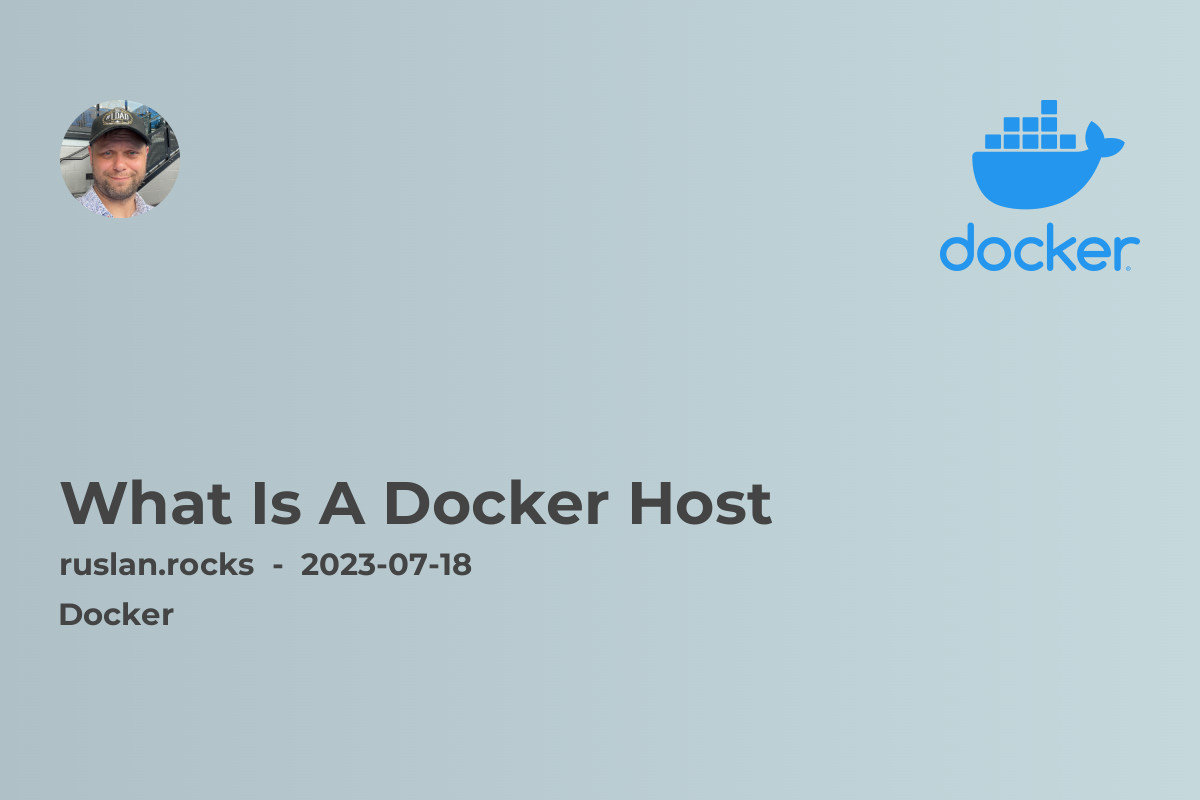- Docker Host and Containerization
- Docker Host Features
- Docker Host Types
- Why Docker Hosts are Important
- Conclusion

A Docker host is a physical or virtual machine that runs one or more Docker containers. It provides the environment where Docker containers can be created, deployed, and managed. But what exactly does it mean to be a Docker host? Let's dive deeper and explore the concept of a Docker host and its significance in the world of containerization.
Docker Host and Containerization
In the world of containerization, a Docker host plays a crucial role. It provides the underlying infrastructure that allows Docker containers to run efficiently. A Docker host can be any machine capable of running the Docker software, such as a physical server, a virtual machine, or even a cloud instance. Its primary purpose is to manage and execute Docker containers, enabling developers to package their applications along with their dependencies into a single, lightweight unit.
Docker Host Features
The Docker host offers several key features that facilitate the deployment and management of Docker containers:
-
Container Runtime: The Docker host includes a container runtime, such as Docker Engine, that allows the execution of Docker containers. The container runtime is responsible for creating, starting, stopping, and deleting containers based on the instructions provided by the Docker images.
-
Isolation: Docker hosts provide isolation between containers, ensuring that each container operates independently of others. This isolation prevents conflicts and interference between applications, making it easier to manage and troubleshoot individual containers.
-
Resource Allocation: Docker hosts allocate system resources, such as CPU, memory, and storage, to containers based on predefined limits and configurations. This ensures that containers have the necessary resources to run optimally without impacting other containers or the host machine.
-
Networking: Docker hosts provide networking capabilities for containers, allowing them to communicate with each other and the outside world. By default, containers can reach other containers on the same host using internal networking, and they can also be exposed to the host network or accessed by other machines on the network through port mapping.
-
Storage: Docker hosts manage storage for containers, including creating and managing the volumes or mounts required by containers to store data persistently.
Docker Host Types
There are different types of Docker hosts, each catering to specific use cases:
-
Local Development Environment: Docker hosts can be set up on developers' local machines, allowing them to create and test containers in a controlled environment before deploying them to a production environment.
-
Virtual Machines: Docker hosts can be deployed as virtual machines on a hypervisor, such as VMware or VirtualBox. This provides isolation between the host machine and the containers, making it easier to manage and allocate system resources.
-
Cloud Instances: Cloud providers like AWS, Azure, and Google Cloud offer Docker host instances that can be quickly provisioned and scaled as needed. These instances provide the flexibility of cloud computing combined with the benefits of containerization.
-
Bare Metal Servers: For larger deployments, Docker hosts can be installed directly on physical servers or dedicated hardware, offering high-performance and greater control over the underlying infrastructure.
Why Docker Hosts are Important
Docker hosts are essential for the successful implementation of containerization. They act as the foundation for running Docker containers and provide the necessary resources and capabilities to ensure smooth container deployment and operation. Docker hosts enable developers to build and ship applications as portable, self-contained units, making it easier to scale, manage, and maintain complex software systems.
By leveraging Docker hosts, businesses can achieve quicker deployment cycles, improved resource utilization, and increased scalability. Docker hosts also enable the seamless orchestration of containerized applications using tools like Kubernetes or Docker Swarm. These orchestration tools help manage clusters of Docker hosts, allowing for efficient scaling, load balancing, and high availability.
Conclusion
In conclusion, a Docker host is a critical component in the world of containerization. It provides the infrastructure and resources necessary for running Docker containers, enabling businesses to leverage the benefits of containerization, such as portability, scalability, and ease of deployment. Whether it's a local development environment, a virtual machine, or a cloud instance, Docker hosts play a vital role in simplifying application management and accelerating software delivery.
Recommended Related Topics:
